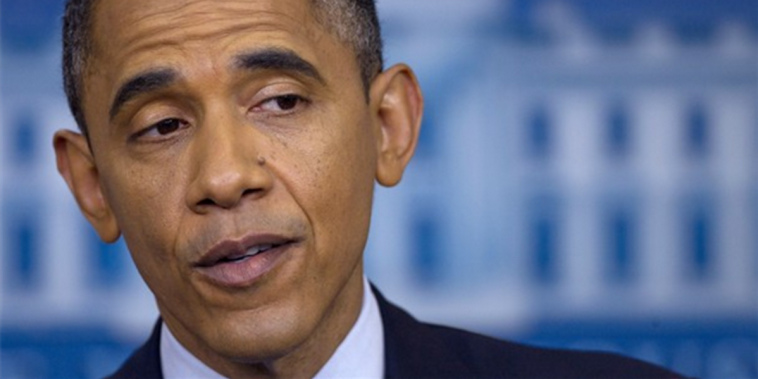American trust in government is at an all-time low, and the continuing tension in Ferguson, Missouri isn’t doing much to strengthen the public’s trust.
Videos By Rare
Skepticism of the state is healthy. But it was happening long before Ferguson.
Here are 6 big lies the government has told us.
1. We know what we’re doing
Last week, the Washington Post reported that TSA agents will be taught that Washington, DC issues driver’s licenses. Why is this necessary? Well, TSA agents have repeatedly hassled travelers because the agents apparently don’t know what the District of Columbia is.
This story of government incompetence is just the tip of the iceberg:
- There’s the White House cybersecurity chief who bragged a couple days ago that he has no knowledge of cybersecurity.
- The EPA is using 20-year-old data to make regulations which decrease employment.
- The government’s transparency website, USASpending.gov, is wrong more than 90% of the time.
- In Iraq, both sides of the conflict are armed with weapons supplied by the U.S. government.
- The Patent Office has knowingly paid employees $80,000+ salaries to sit at home and watch TV.
These are not stories of an organization that knows what it’s doing.
2. This nanny state is for your own good
The war on drugs—like Prohibition—is supposed keep us safe from crime and addiction, right?
Well—also like Prohibition—it doesn’t.
When liquor was banned, violent crime spiked and alcohol consumption didn’t substantially decrease. The repeal of Prohibition is what actually made America safer.
The drug war works the same way. Since marijuana was legalized in Colorado, for instance, there has been a notable decrease in violent crime; and police can reroute their time and as much as $40 million annually to dealing with real criminals instead of people who buy pot. In Portugal, where all drug use was decriminalized more than a decade ago, drug use and addiction rates are way, way down.
3. If you have nothing to hide, you have nothing to fear
If any lie on this list is in the running to win “most obvious,” it’s this one—given what we know about the insane, illegal, and invasive things the NSA does.
Mass surveillance suppresses dissent and breeds conformity. It’s unconstitutional and more intrusive than we know. And even if you think you don’t have anything to hide, you do: The average American unknowingly commits three felonies a day because we’re so over-regulated. In short, it’s pretty clear we all have something to fear: our government.
4. This is the right war to fight
Every time our government wants to wage a new war with our lives and money, we hear about how this time it’s different—how we’re definitely doing the right thing and helping the good guys.
How there’s no chance we’ll lose. The opposite is more often true.
Take the 2003 invasion of Iraq, which we now know was started under false pretenses. Then Defense Secretary Donald Rumsfeld first said Iraq did have weapons of mass destruction—and then later denied ever saying it when his claims were show to be false.
Today, it’s increasingly clear that the 2003 invasion is a direct cause of the heartbreaking chaos in Iraq. The good news is that the American public is catching on, and poll after poll shows we’re tired of war and ready for peace.
5. We’re a global force for good
The U.S. Navy’s slogan is “A global force for good.” But is that really accurate?
Most Americans don’t think so—70 percent say the military should focus on defending our country, not trying to help and police the whole world.
This isn’t to criticize the Navy in particular (my grandfather was a Navy admiral) or those who serve in any branch of our military. They didn’t decide to start multiple aggressive, no-win wars in the last decade.
But we should criticize the people in Washington who did start them.
It isn’t exactly true that U.S. foreign policy is always a global force for good. Just as the Iraq War led to the creation of ISIS and the havoc it has wrought, so did American actions in Afghanistan during the Cold War which produced the brutal Taliban. Recent military intervention in Libya and Syria has been similarly messy and morally ambiguous. And our drone war is killing innocent civilians and creating new terrorists all the time.
6. Everyone gets equal treatment in America
Ever since Thomas Jefferson wrote in the Declaration of Independence that “all men are created equal,” legal equality has in principle been a point of pride in the U.S.
But in practice? Not so much.
From historical injustices like slavery, limited voting rights for minorities and women, the Tuskegee syphilis experiment, McCarthyism, and internment camps—to modern abuses like nixed voting rights for nonviolent drug users, illegal surveillance of citizens solely because they’re Muslim, racially biased enforcement of drug laws, assassination of an innocent 16-year-old kid, and IRS targeting of conservative and progressive political groups, one thing is clear: Our government doesn’t treat people equally.
Differences of race, sex, religion, political convictions, and more have historically been used as excuses to violate some Americans’ right to life, liberty, and the pursuit of happiness—and that continues to be the case today.

